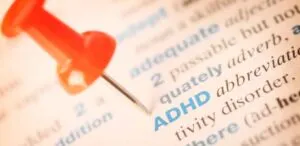Seasonal Affective Disorder:
Seasonal affective disorder (SAD) is a type of depression that’s caused by a change in seasons, usually when fall arrives. Before fading in the sunnier spring days, this seasonal sadness gets worse in the late fall or early winter. You can also get a mild version of Seasonal Affective Disorder known as the “winter blues.” The winter blues are very common, with many experiencing a mood shift during the colder, darker days of winter.
However, SAD goes beyond winter blues. It’s a form of depression. Your daily life, including how you feel and think, is impacted by SAD. The seasonal affective disorder is also called seasonal depression.

What are the Symptoms of Seasonal Affective Disorder (SAD)?
If you have seasonal affective disorder, you may suffer depressive symptoms and mood swings like:
-
- Feeling depressed, sad, or down the majority of the time
-
- Weight gain and cravings for carbohydrates
-
- Persistently feeling down
-
- Feeling anxious
-
- Feeling extreme exhaustion and loss of energy
-
- Feelings of worthlessness or hopelessness
-
- Having trouble focusing
-
- Feeling lethargic and sleepy during the day
-
- Being angry or irritated
-
- Having thoughts of not wanting to live
-
- Sleep problems
-
- Loss of enjoyment or interest in often enjoyable activities
Summer SAD sufferers could experience the following:
-
- Agitation and restlessness.
-
- Decreased appetite
-
- Weight loss
-
- Episodes of violent behavior
-
- Trouble sleeping (insomnia)
-
- Increased irritability
What causes seasonal affective disorder (SAD)?
Seasonal depression’s specific cause is unknown to researchers. The theories state:
-
- Melatonin boost: A hormone called melatonin regulates your emotions and sleeping patterns. In some persons, the lack of sunlight may encourage excess production of melatonin. During the winter, you could feel lethargic and tired.
-
- Brain chemical imbalance: Neurotransmitters are substances in the brain that communicate with nerves. Serotonin is one of these chemicals, and it has an impact on your mood, happiness, hunger, and sleep. Your serotonin levels may already be low if you suffer from SAD. A lack of sunlight in the winter can worsen the situation because sunlight helps regulate serotonin. Serotonin levels might further drop and cause depression.
-
- Biological clock change: Your biological clock adjusts when the level of sunshine decreases. Because your body depends on sunshine to time important processes, such as when you wake up, lower light levels throughout the winter may disrupt your body clock and cause SAD symptoms. This internal clock drives your hormones, mood, and sleep.
-
- Vitamin D deficiency: Serotonin levels are also increased by vitamin D. Because vitamin D is produced in part by sunlight, a lack of sunlight during the winter months might cause a vitamin D shortage. The serotonin level and your mood may be impacted by that change.
How is seasonal affective disorder (SAD) diagnosed?
Do not attempt to self-diagnose seasonal affective disorder (SAD) if you ever experience symptoms. Visit a Psychiatrist for a complete assessment. You will be questioned by these mental health professionals about your symptoms. Your pattern of symptoms will be taken into account when determining if you have seasonal depression or another mood disorder.
A comprehensive assessment often includes the following to help with the diagnosis of SAD:
-
- Physical exam. Your doctor could do a physical examination and ask you detailed questions about your health.
-
- Lab tests. For instance, to check if your thyroid is working correctly, your doctor may do a blood test called a complete blood count (CBC).
-
- Psychological evaluation. Your doctor or mental health specialist will inquire about your symptoms, thoughts, feelings, and behavior patterns to look for indications of depression.

How is seasonal affective disorder (SAD) treated?
You will discuss treatment choices with your doctor. You could require a combination of therapies, such as:
-
- Light therapy: Bright light treatment, commonly referred to as phototherapy, uses a special lamp to treat SAD. You sit a few feet away from a specific light box each day after waking up to be exposed to strong light. The use of light therapy, which replicates natural outside light, seems to affect the brain chemicals linked with mood.
-
- Cognitive behavioral therapy (CBT): CBT is a form of talk therapy. Research has shown that it provides the most sustained treatment for SAD and produces long-lasting effects compared to any other treatment approach. Cognitive behavioral therapy can help you learn healthy ways to cope with SAD, especially by reducing avoidance behavior and scheduling meaningful activities. It also helps you learn how to manage stress.
-
- Medication: Some SAD sufferers get relief from antidepressant medication, especially if their symptoms are severe. Sometimes, doctors will advise taking depression medication, either by itself or in combination with light treatment.
-
- Spending more time outside: Getting more sun will help your symptoms go better. Try to get out during the day. Boost the amount of sunlight entering your home or place of work.
-
- Vitamin D: A vitamin D supplement may make you feel better.
Novus Beginning Psychiatry: Your Path to Health and Wellness Starts Here!
We understand that navigating the complexities of mental health can feel overwhelming, but you don’t have to face it alone. At Novus Beginning Psychiatry, we’re here to support you every step of the way. Whether you’re seeking therapy, medication, or a combination of both, our compassionate professionals are dedicated to helping you find the path to a happier, healthier life.
Our highly skilled psychiatrists are experienced in a wide range of mental health conditions, including anxiety, depression, bipolar disorder, OCD, PTSD, ADHD, autism, and more. We offer evidence-based therapies that have been proven effective in helping individuals overcome their challenges. From cognitive-behavioral therapy (CBT) to couples/family therapy, we utilize the most up-to-date techniques to empower you on your healing journey.
We also recognize that medication is vital in managing certain psychological health conditions. Our team includes Dr. Nibras, who is a board-certified psychiatrist well-versed in medication management. He works closely with you to develop a comprehensive treatment plan, as we believe in the power of personalized care.
So, take the first step towards a brighter future. Contact us today to schedule an appointment. Our friendly staff is ready to assist you in finding a convenient time to meet with our dedicated professionals. Call (832)856-4718 and let us help you take charge of your mental well-being.
Medication Management For Psychiatric Wellness
At Novus Beginning Psychiatry, we’re dedicated to helping you unlock the power of effective medication management. Our team of psychiatrists has years of experience and understands the importance of finding the right balance for your mental health journey. We offer personalized and compassionate care, creating medication plans that are tailored to your unique needs. Our understanding of psychopharmacology allows us to provide the most advanced and evidence-based treatments available.
Our goal is to help you by providing the right medications to enhance your therapy outcomes, reduce your symptoms, and improve your overall well-being. We want to be your trusted partner on the path to a brighter future. Please don’t hesitate to contact us at Novus Beginning Psychiatry to experience the transformative effects of our comprehensive medication management approach.
Who is Dr. Nibras?
Dr. Sohail Nibras is a double board-certified psychiatrist in child, adolescent, and adult psychiatry. He completed his education at Saint Louis University and the American University of Integrative Science. He excels in treatments based on psychiatric care and therapeutic sessions and has experience treating dual psychiatric and substance use disorders. He is an assistant professor at the Menninger Department of Psychiatry and Behavioral Sciences at Baylor College of Medicine in Houston, Texas. He serves as an attending psychiatrist at Texas Children’s Hospital. He trains future psychiatrists and engages in scholarly research projects.
Visit us
Come and visit us at one of our locations in-person or meet us via telepsychiatry/online!
We’re here to help in Texas, ready to meet you in-person. If you’re unable to make it in person, don’t worry, we’re also available online, so you can meet us easily from the comfort of your own home. Whether you prefer to see us face-to-face or connect with us online, we’re here to assist you every step of the way.
Address in Sugar Land
120 Eldridge Rd Suite D, Sugar Land, TX 77478
Address in Katy
23410 Grand Reserve Drive, Ste. 401 & 402 Katy, Texas 77494



